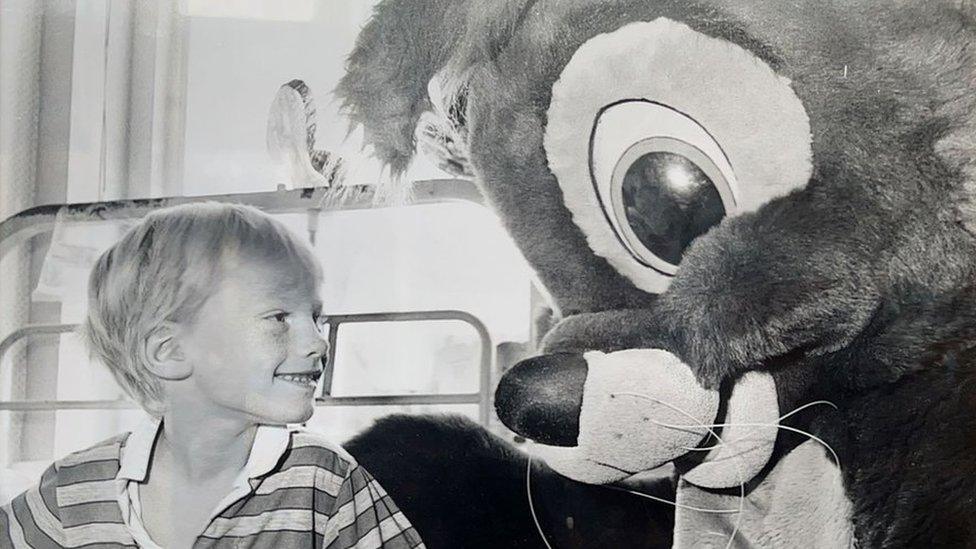Mum still feels guilt for son's infected blood death
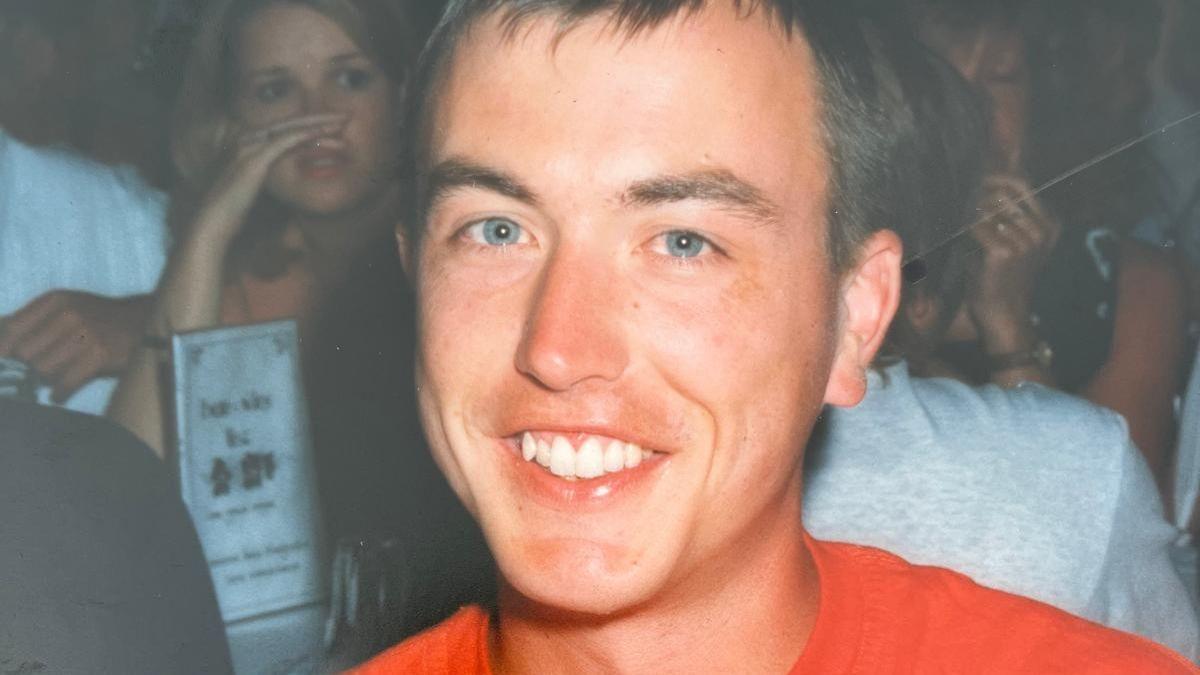
Martin White was first given contaminated blood products when he was seven
- Published
Val White still feels guilt about her son Martin’s death.
When he was seven years old, she gave him injections of a blood clotting treatment that they later discovered was contaminated with HIV.
She could never have known that the treatment she was giving to her son, who had haemophilia, external, was going to kill him.
"It destroyed his life," said the 77-year-old, from Cardiff.
"A lot of it is guilt – guilt that I wished I’d done more. Guilt that I gave him the injection – it was me that administered it."
It has been more than 20 years since Martin died, at the age of 33 after he developed HIV at the age of 14.
"HIV was so new we hadn’t really heard a great deal of it until then," said Mrs White.
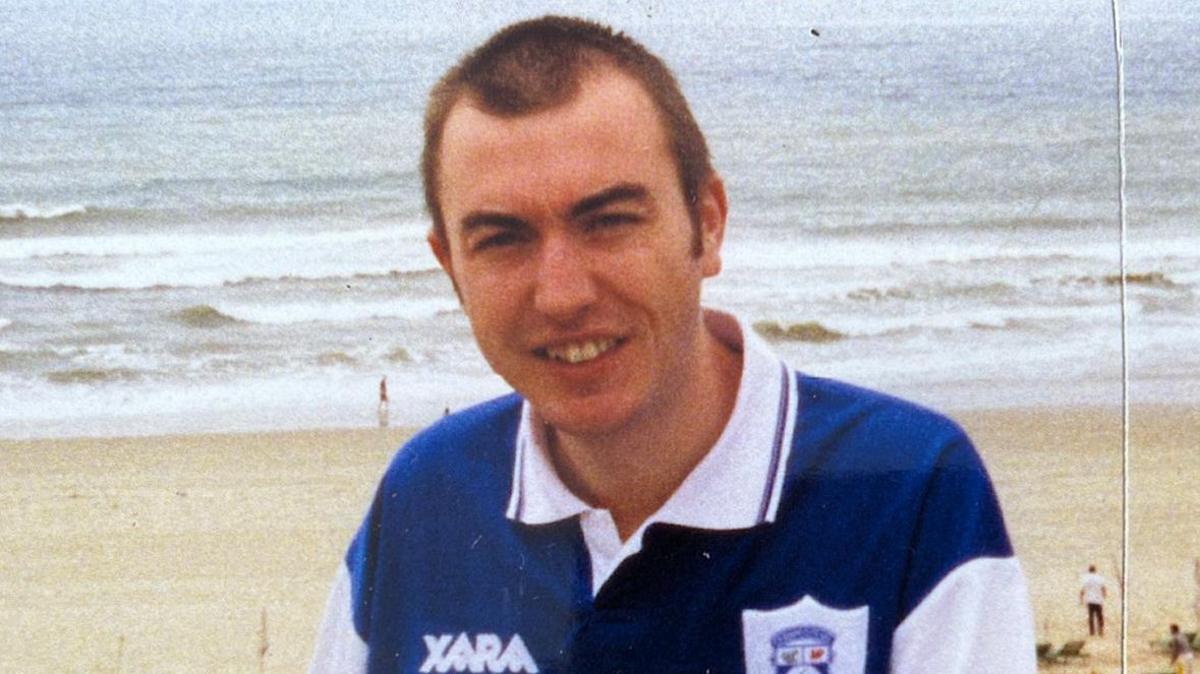
Martin White was 14 when he was diagnosed with HIV
"It was explained we mustn’t touch his toothbrushes – to tell the other children was very difficult.
"You’ve still got to be loved, you’ve still got to be cuddled and kissed and carry on normally, without upsetting him."
On Monday, the public inquiry into what has been called the biggest treatment disaster in NHS history will report on whether others could have prevented Martin's death.
Martin was 13 months old when, in 1971, he was diagnosed with haemophilia, external, a rare genetic condition which meant his blood did not clot properly.
He was seven when he was put on a new treatment regime – using the blood clotting treatment, Factor 8.
Factor 8 was made from the plasma of tens of thousands of people, predominantly imported from America, using blood that high risk donors had been paid for.
If just one donor was carrying a virus, the entire batch was contaminated.
These products were routinely used for haemophilia treatment in the UK by the late 1970s, and patients needing blood transfusions between 1970 and 1991 were also given contaminated blood.
This resulted in more than 30,000 people across the UK, including 400 people in Wales, being infected with HIV and Hepatitis C.
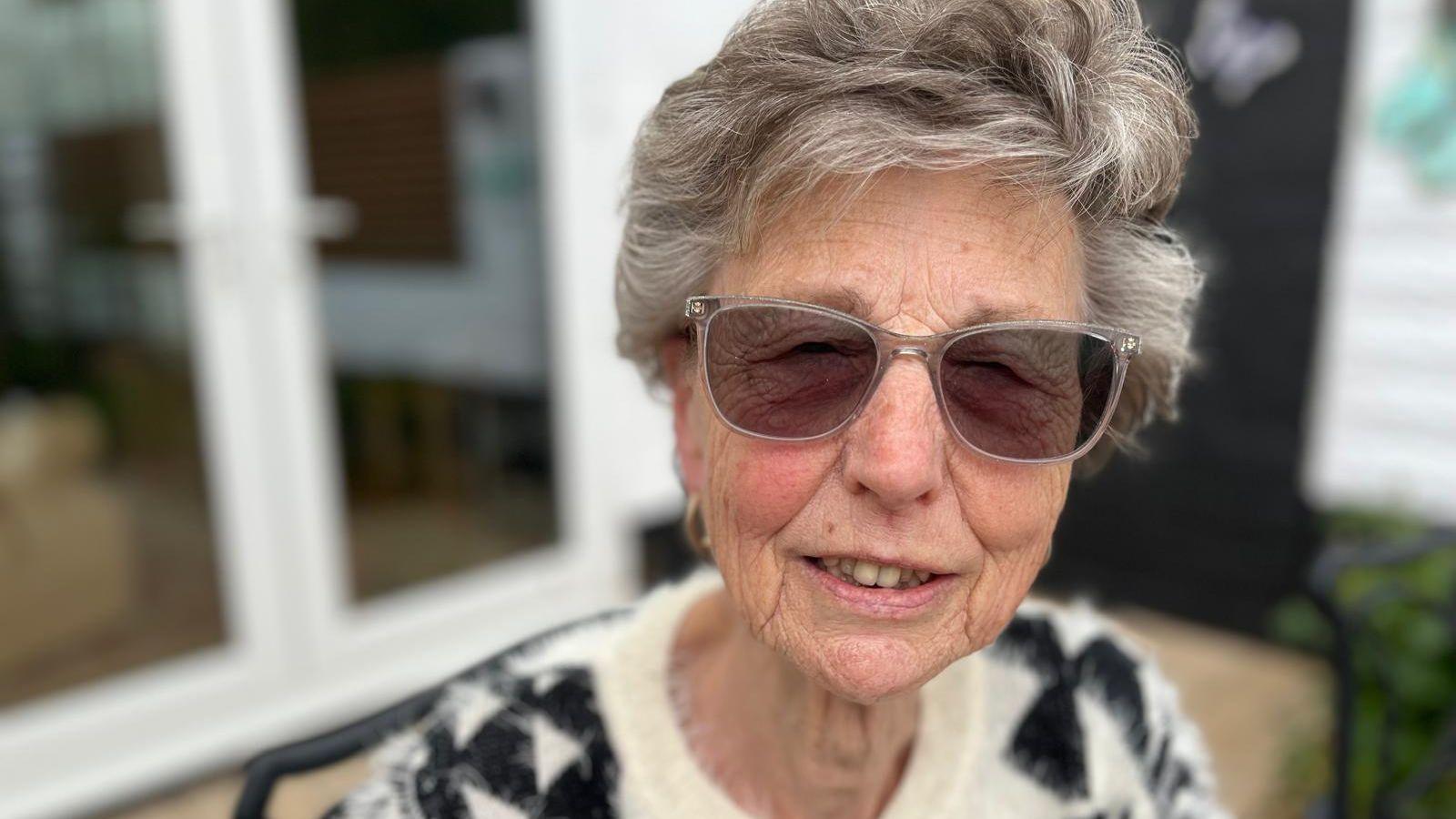
Val White said her son suffered physically and mentally because of his treatment
"Martin suffered really badly, mentally as much as physically," said Mrs White.
"The tablets he was on really made him violently ill and he suffered a lot with his liver."
Mrs White had to leave her work as a nurse auxiliary – at the same Cardiff hospital where Martin was treated by Prof Arthur Bloom.
"I was off with anxiety and depression and had a couple of nervous breakdowns," she said.
"It was at the time when Rock Hudson died (from Aids) and the pictures were in the paper of him and I kept thinking 'what will Martin look like when it’s his end?'
"In the end it just took over."
Lynne Kelly, chair of Haemophilia Wales, said many of the surviving patients or relatives would travel to London for the publication of the final report by Sir Brian Langstaff on Monday.
"We hope there will be criticism about the way the situation in Wales was dealt with,” she said.
While the scandal pre-dates devolution, she said the Wales Office was influential, yet "Wales seemed to be forgotten and people left to get on with it without support".
What is the infected blood scandal?
More than 30,000 people in the UK were infected with HIV and Hepatitis C after being given contaminated blood products in the 1970s and 1980s.
Two main groups of NHS patients were affected.
Firstly, haemophiliacs - and those with similar disorders - who have a condition which means their blood does not clot properly.
A second group of patients were given contaminated blood transfusions after childbirth, surgery or other medical treatment between 1970 and 1991.
Across the UK, it's thought about 2,900 people have died.
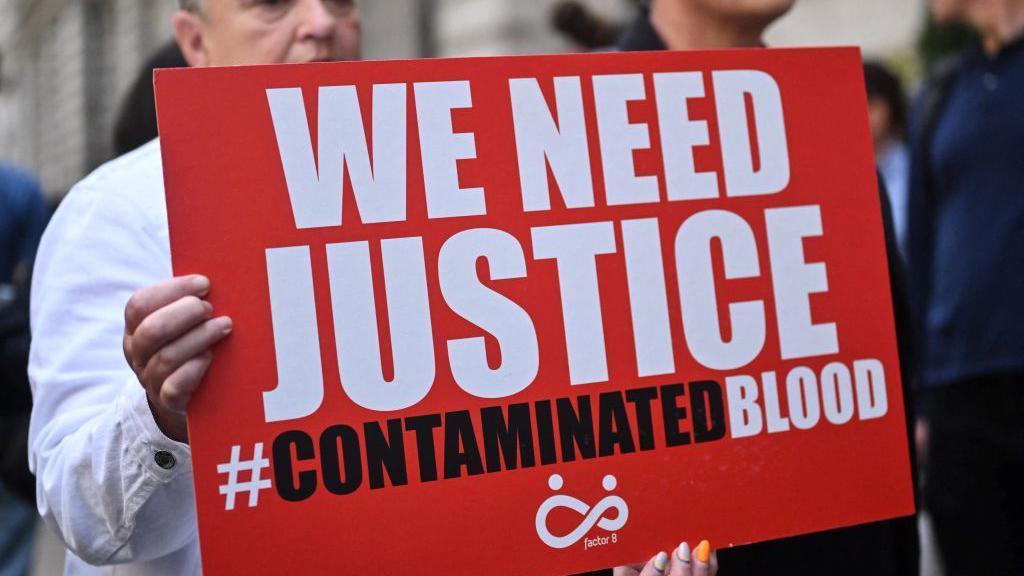
Campaigners are calling for compensation for victims of the infected blood scandal
'We watched him crumble'
One of the key players in Wales was Prof Bloom, who was director of the Haemophilia Centre in Cardiff at the time, as well as chair of the UK haemophilia doctors’ organisation.
BBC Wales Investigates discovered internal NHS guidelines from May 1983 for the department Prof Bloom was in charge of that discouraged the use of imported blood treatments on children because of the risks of infection.
Prof Bloom has since died.
"We don’t know why Prof Bloom didn’t act on any of the warnings," said Ms Kelly.
"Parents continued to inject children, [not] knowing there were risks."
"Everyone thought [Prof Bloom] was a saint," said Mrs White.
"You felt as if he was a friend, which is hard now."
Mrs White later discovered a note in Martin’s medical records from 1983, which suggested that he was given the same batch of Factor 8 as Kevin Slater – the first haemophiliac patient in the UK to test HIV positive and die from Aids.
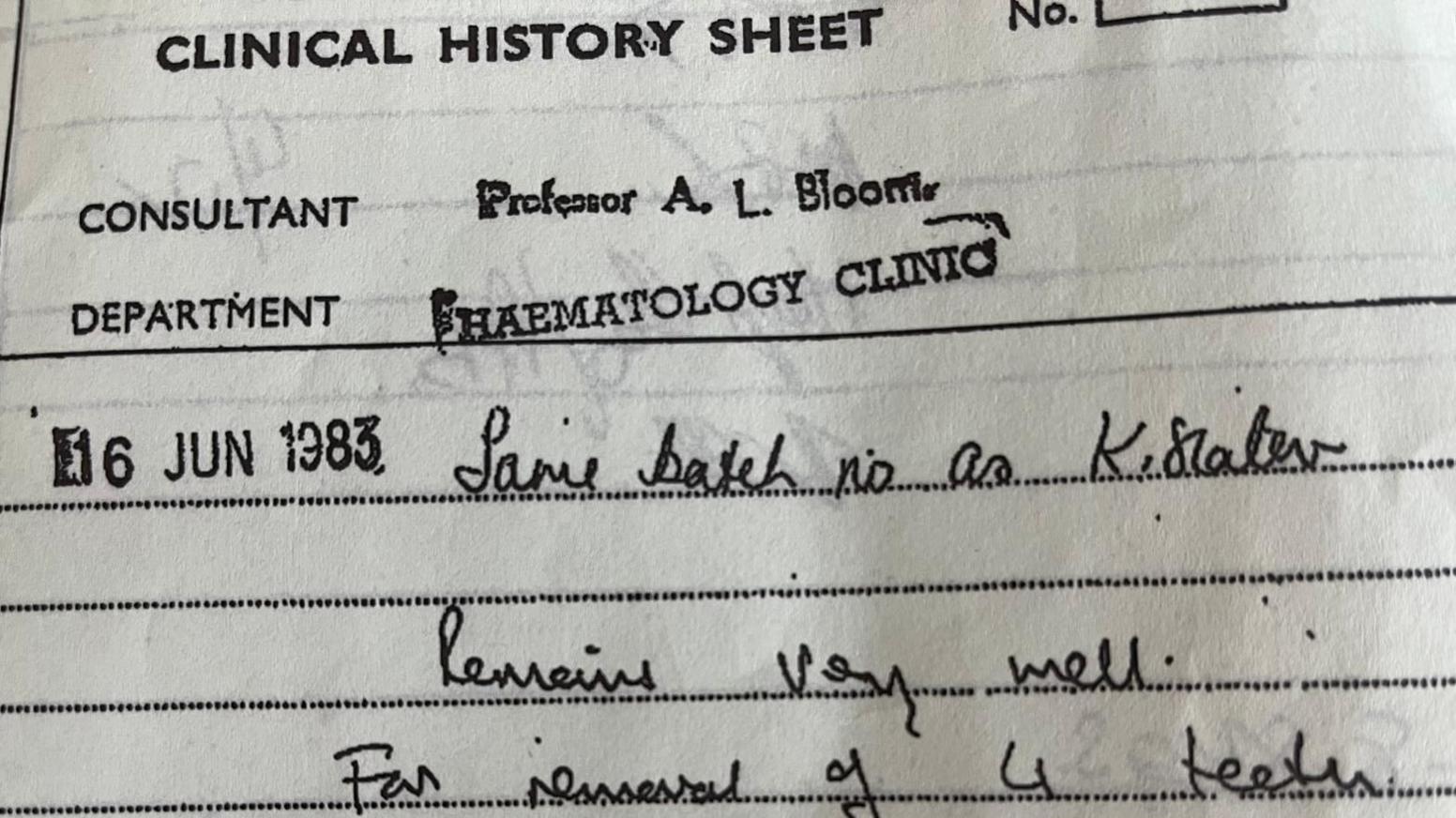
Martin's medical notes suggest he had the same batch of Factor 8 as the first patient to die from Aids after being given contaminated blood
Mr Slater, from Cwmbran, developed Aids in 1983.
"We’re annoyed, disappointed... as you can imagine when you put your trust in someone and it’s been badly mistreated like that," said Mrs White.
Interim compensation payments have already been paid, but recommendations from the inquiry for a final compensation scheme – likely to cost billions – are yet to be enacted.
The UK government said it would be inappropriate to respond before the full report was published.
Ms Kelly said many families were apprehensive about whether the recommendations might eventually be watered down.
Though Mrs White said the money was not important.
"It’s about justice for Martin, because mentally and physically it destroyed him and we watched him crumble in front of our eyes."
Related topics
- Published14 April 2024
